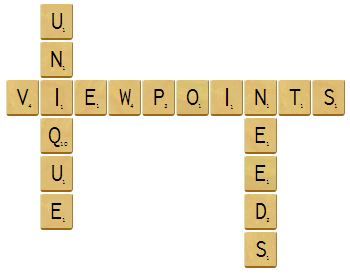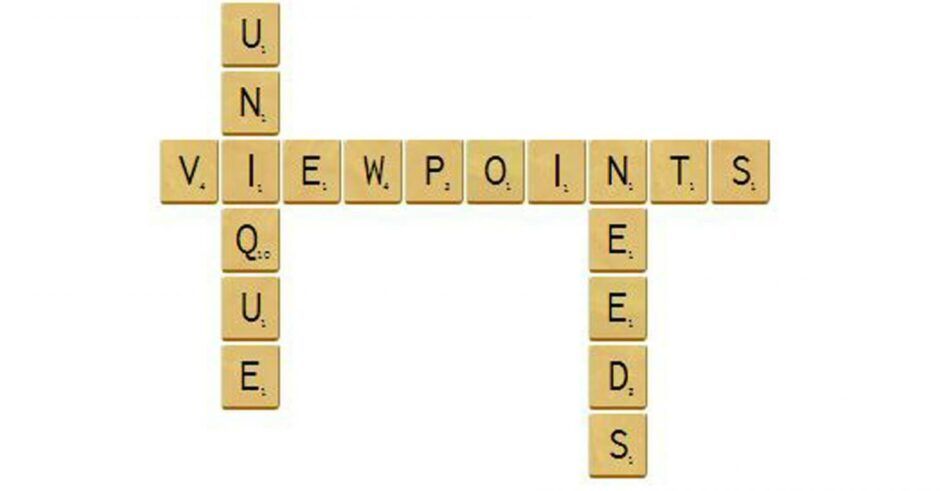Growing up we are taught (and throughout life we observe) what is frequently referred to as the Golden Rule. For many of us it started as (and maybe still is) the phrase “do unto others as you would have them do unto you”, and while the exact wording is flexible the central message is common to all.
In principle, the concept champions a two-way, reciprocal and mutual relationship between two or more parties.
This indeed is a very admirable idea, but it has a fundamental flaw that is amplified when brought into the workplace.
What if that person doesn’t want to be treated the same as you..? What if they are driven by different motivational factors..? What if a different set of criteria makes them feel valued at work..
The Golden Rule may be hurting workplace relationships leading to reduced employee engagement and damaging the business. Whereas the intentions of individuals may be admirable when applying the ‘ethic of reciprocity’ to their colleagues or (in the case of managers) their subordinates, they may actually be hurting workplace relationships leading to greater employee disengagement and damaging the business.
There’s no human handbook

You see, we are all very different and (as any first-time parent will tell you) not one of us comes with an instruction manual or user guide. Even if science could tap into us and produce an instruction book from our DNA and mental makeup, no two would be the same.
Many or most of us have bought items, gadgets, a car, etc… in the past and said to ourselves “I don’t need to read the stupid book that comes with this”. We then spend way too much time fiddling and breaking various settings or switches before finally getting it to work. Humans are the same and if we jump right in assuming we know what makes them tick we are likely to push a few wrong buttons along the way.
You do what…?
Even when we get our aforementioned new gadget working it’s highly likely that there are many features we haven’t even realized exist. Again it’s same with people and we are often surprised when we discover a trait, quality or characteristic in someone we thought we knew.
Our uniqueness means each of us has different values, outlooks, beliefs and opinions, but all too frequently we expect others to have the same values, outlooks, beliefs and opinions. We think that because we like something then doesn’t everybody else and if we find out differently we wonder how is it possible that someone does not like that. What then compounds the issue is that the other person is likely thinking the same about us.
In his #1 bestseller ‘The 7 Habits of Highly Effective People’ the late Stephen R Covey indicated that a certain father “looked into his own head and thought he saw the world” when trying to understand his son. If a parent finds it difficult to connect with their own child we begin to see just how difficult it is to do the same with people we only spend a few hours each day with at work.
Impact in the workplace
In business, not understanding and accepting the needs, values and viewpoints of others can have very negative effects.
If employees don’t actively engage with their colleagues to find out their needs and (just as important) let them know their own needs, you can be assured that differences between them will not be managed effectively and will likely escalate to conflict.
In addition, if staff only ever hear about a managers philosophy or strategy and their own agendas or ideas are seemingly ignored they will become disengaged which in turn will impact productivity.
In most cases, people don’t even realize they are not being receptive to others needs as they believe that what pleases them must obviously please others. As discussed earlier this couldn’t be further from the truth. For example, some people like to feel appreciated and valued with a simple ‘thank-you’ whereas others may want to be challenged to achieve greater things and certain other people may even see a ‘thank-you’ as being patronizing.
Not understanding how another person wants to be treated (and subsequently acting accordingly) can be very detrimental to relationships at work.
Making it better.
Many noted scholars, philosophers and business have chimed in on this and George Bernard Shaw was one of the first and most famous scholars to challenge the golden rule when he stated “Do not do unto others as you would that they should do unto you. Their tastes may not be the same”

Good working relationships occur when all parties are conscious of each other’s needs and work to try and satisfy them. This doesn’t mean ignore corporate boundaries or moral ethics, but if everyone buys into this idea then it should actually be well structured and a cooperative effort.
First and foremost you have to get to know other people and find out how they are wired. In conversations, make the other person your starting point because if you don’t know what drives them how can you possibly expect to get it right for them. Don’t use yourself as the reference point for getting it right for others.
Don’t be shy about asking questions such as “Am I getting it right for you?”, “Do you feel I understand you?” or “Does this work for you?”…and vice-versa so we problem solve in a collaborative manner.
If you are relatively new to a company you may not be comfortable asking these types of questions directly. You can ask your manager or another colleague for their ‘take’ on what others needs are, but be mindful that they may have drawn up these conclusions themselves which may not be very accurate. At the very least you should be able to pick up on something that will help you break the ice with the other people such as finding out about their hobbies, TV shows they watch, number of kids, etc….
It is extremely effective to have team-based sessions to facilitate openness among employees, talk about our differences and collaboratively problem-solve how we can address each other’s wishes. Organized sessions and activities (like those found in our employee engagement program) will also lead to staff taking ownership for having their needs met and will help boost workplace relationships significantly.
Conclusion
In all facets of life, we meet some people with whom we’ll have a close set of similar traits and will likely have a very natural connection with them while others will be much more difficult to interact with.
But it’s not about whom or what is right or wrong but what is important to each of us. We must then do unto others as they would like to be done unto them.
The Business Transformation Network has posted this article in partnership with Shea Heaver.com





